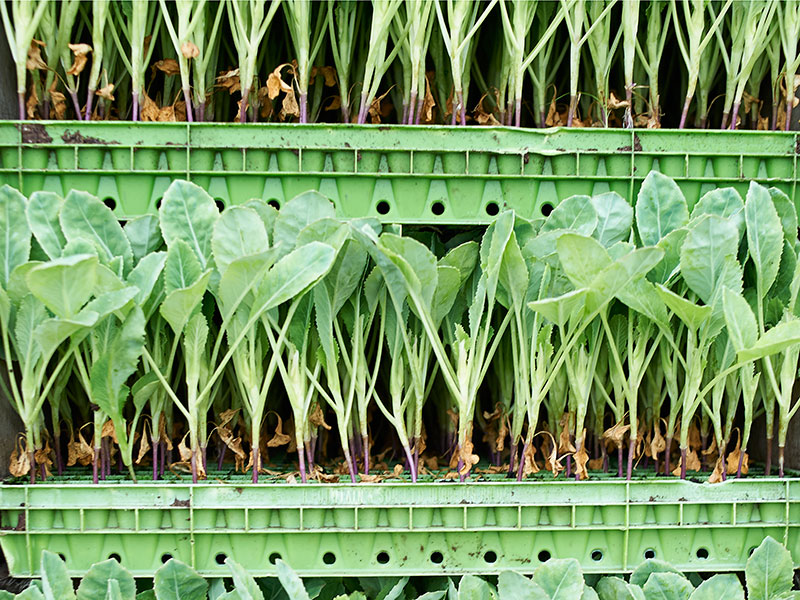Vertical farming start-up AeroFarms raises $100m in Series E funding round
AeroFarms, one of the major players in the burgeoning vertical farming sector, will look to expand its produce portfolio after receiving significant investment in a Series E funding round led by IKEA’s parent company

A growth industry: at present, vertical farms primarily produce salad greens, but companies are hopeful that they will be able to expand their portfolios in the near future
AeroFarms, a vertical farming start-up, has raised $100m in a Series E funding round. The investment will help the US-based company expand its indoor farms and explore the new types of produce it can grow in these facilities.
As reported by the Financial Times, the fundraising will bring AeroFarms’ valuation up to $500m. The round was led by the venture capital arm of Ingka Group, IKEA’s parent company and an existing investor in AeroFarms.
AeroFarms’ crops are grown under LED lights, on top of a layer of cloth suspended over a solution chamber. Here, aeroponic systems mist their roots with water, nutrients and oxygen. Thanks to this closed loop system, the process uses 95 percent less water than field farming, according to AeroFarms’ website.
AeroFarms can grow the exact same seed in half the time it would take a farmer using traditional methods, resulting in 390 times more productivity per square foot
The company also closely monitors the plants’ nutrition intake. This means that AeroFarms can grow the exact same seed in half the time it would take a farmer using traditional methods, resulting in 390 times more productivity per square foot. Earlier this year, AeroFarms closed a ‘farm-to-plane’ partnership with Singapore Airlines, agreeing to provide fresh produce for its in-flight meals.
According to Grand View Research, the global vertical farming market is expected to grow to $9.96bn by 2025. At present, the farms primarily produce salad greens, but companies are hopeful they can expand their portfolios. For example, Plenty, an indoor vertical farming company that received a $200m investment from SoftBank in 2017, is now experimenting with strawberries, cherry tomatoes and more exotic fruits.
Given their high yields and low water usage, vertical farms certainly seem to be a more sustainable option than traditional field farms. However, it is yet to be seen whether they are financially viable: the facilities are expensive to set up and run, with LED lights and ventilation ramping up energy costs. Nevertheless, demand for this new method of farming is likely to rise as climate change impacts harvest output and the challenge of feeding a growing population becomes more pressing.













